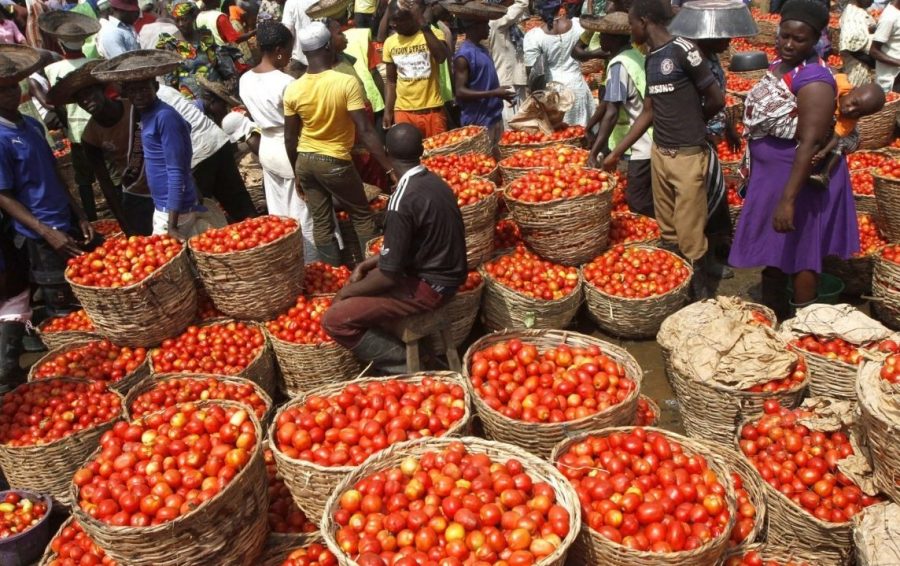Housewives bemoan the rising cost of tomatoes.
On Sunday, some housewives in the Federal Capital Territory of Abuja claimed they no longer use tomatoes in their stews and other sauces due to rising costs. The locals revealed this in an interview with the News Agency of Nigeria and claimed they have resorted to stews cooked with garden carrots and eggplant.

According to them, garden eggs, also known as "ganyen gauta" in Hausa, "igba" in Yoruba, and "anyara" in Igbo, can combine with rice just like tomatoes.
Others claimed they were looking for alternatives to tomato stew, such as pumpkin, pawpaw, or conventional soups like white soup and palm fruit soup, often known as banga soup.
A week without rice and tomato stew, according to Mrs. Jumai Amodu, a mother of five, was unsatisfying for her and the family.
She stated that they frequently served rice and stew and that eating cooked rice and stew brings "an unexplainable satisfaction."
But the five-parent family was trying garden egg stew because tomatoes were so expensive and scarce.
Amodu stated, "We opted to use garden eggs for stew because tomatoes had become quite expensive, and it is just as sweet as tomato stew.
"The color is the only significant distinction between tomato stew and garden egg stew.
Although pumpkin stew has a distinct flavor of its own, we occasionally serve it with rice and it works nicely.
While tomato stew is a staple in almost all Nigerian homes, according to businesswoman Mrs. Helen Omo, its scarcity has led some Nigerians to consider substitutes. “I went to the market yesterday to get some tomatoes for stew and a sizeable bushel, which costs between N2000 and N2500 was being sold for as much as N6500.
“I did not bother to haggle the price because it was way beyond my budget,” she said.
The businessman Mr. Chinedu told NAN that he likes to eat rice with white soup or pepper soup. "All food costs have increased, but tomatoes are outrageously expensive, perhaps because it is the off-season for tomatoes.
We chose to investigate other recipes because it is pricey and hard to come by, he continued.
Umar Adamu, a tomato vendor in Nyanya Market in the FCT, claimed that he had temporarily stopped selling tomatoes because of poor demand.
He claimed that due of the high price, customers were not "patronizing him."
According to Mrs. Rukkaya Umar, Chief Executive Officer of Abraks Farm Produce Nigeria Limited, the high price of fertilizer is the main cause of the scarcity of tomatoes.
She added that fertiliser was essential to its growth and claimed that many tomato producers do not cultivate them because they cannot afford it.
Umar added that it was the off-season for tomatoes and that one of the causes of the scarcity was reliance on seasonal farming.
The majority of farmers in Nigeria still practice seasonal farming, which significantly adds to the scarcity of farm products, especially during their off-seasons, she said.
According to NAN, a large basket of tomatoes that once cost around N10,000 is now going for over N35,000, and larger baskets are more expensive.
NAN
What's Your Reaction?


















































